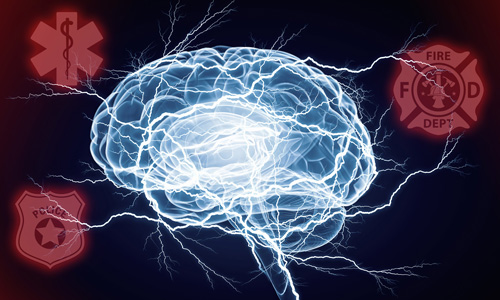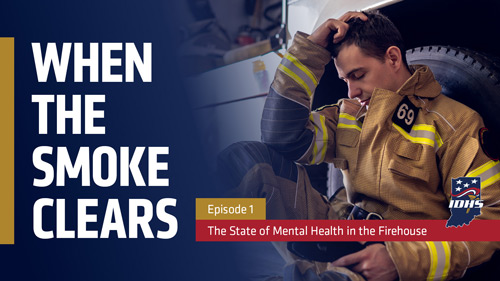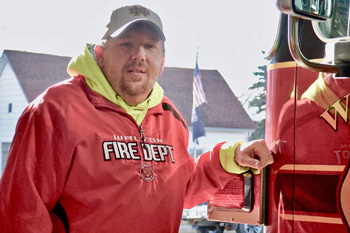Local initiatives take care of firefighter brothers and sisters
Indiana fire departments and unions have programs to check on firefighters before a crisis occurs and to step in to provide options when they feel like they have nowhere to turn. Learn more about peer support programs in the April Hoosier Responder.

First responders witness many critical incidents throughout their careers, and the repeated exposure to these traumatic events can take its toll. Rates of post-traumatic stress disorder and depression for firefighters and police officers has been found to be as much as five times greater than the general population, according to a Ruderman Family Foundation white paper. First responders are also more likely to die by suicide than they are to die in the line of duty, and the Firefighter Behavioral Health Alliance estimates that only about 40 percent of firefighter suicides are reported.
All first responders need to be aware of the health risks their jobs present, and they need to know when they need help and how to get it. Organizational leaders and coworkers also need to establish work environments that provide adequate training, protect from overwork and support public safety personnel seeking help when they need it.
Some conditions first responders should look out for in themselves and their coworkers:
- Depression: Mental health disorder characterized by persistent depressed moods or loss of interest in activities. This affects how you feel, think and handle daily activities, such as sleeping, eating or working.
- Post-traumatic stress disorder (PTSD) or symptoms: Disorder where you have ongoing feelings of stress or fear, even when not in danger. Symptoms that last more than a month and interfere with relationships or work may be considered PTSD.
- Suicide ideation: Thinking about, considering or planning suicide.
- Substance use disorder (drug addiction): Disorder affecting a person's mind and behavior, leading to an inability to control the use of a legal or illegal drug or medication. The continued use of these substances changes normal behaviors and interferes with your ability to work or have good relationships with friends and family. Note: Substance use disorder does not require that a person be physically or psychologically dependent on a substance.
Immediate Help
If you are a first responder experiencing emotional distress or are thinking of taking your life, get help from:






